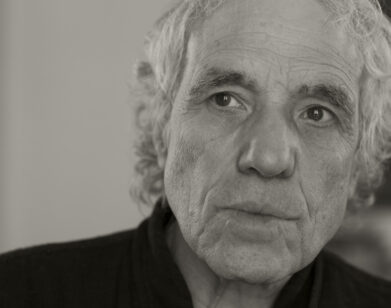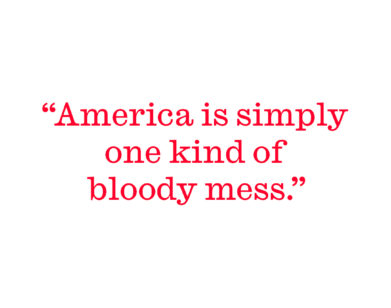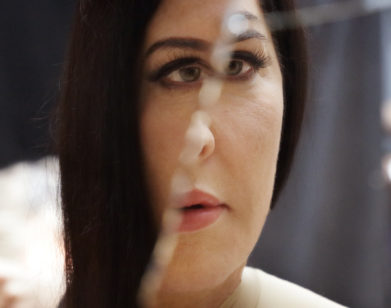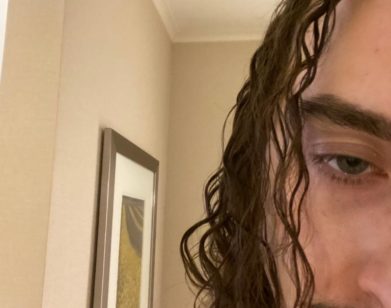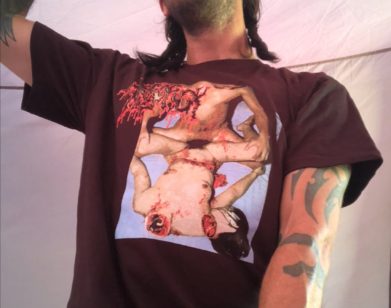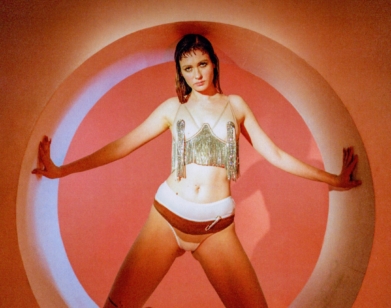Ukraine Dispatch
Anton Belinskiy Sees Elephants in Moscow’s Streets
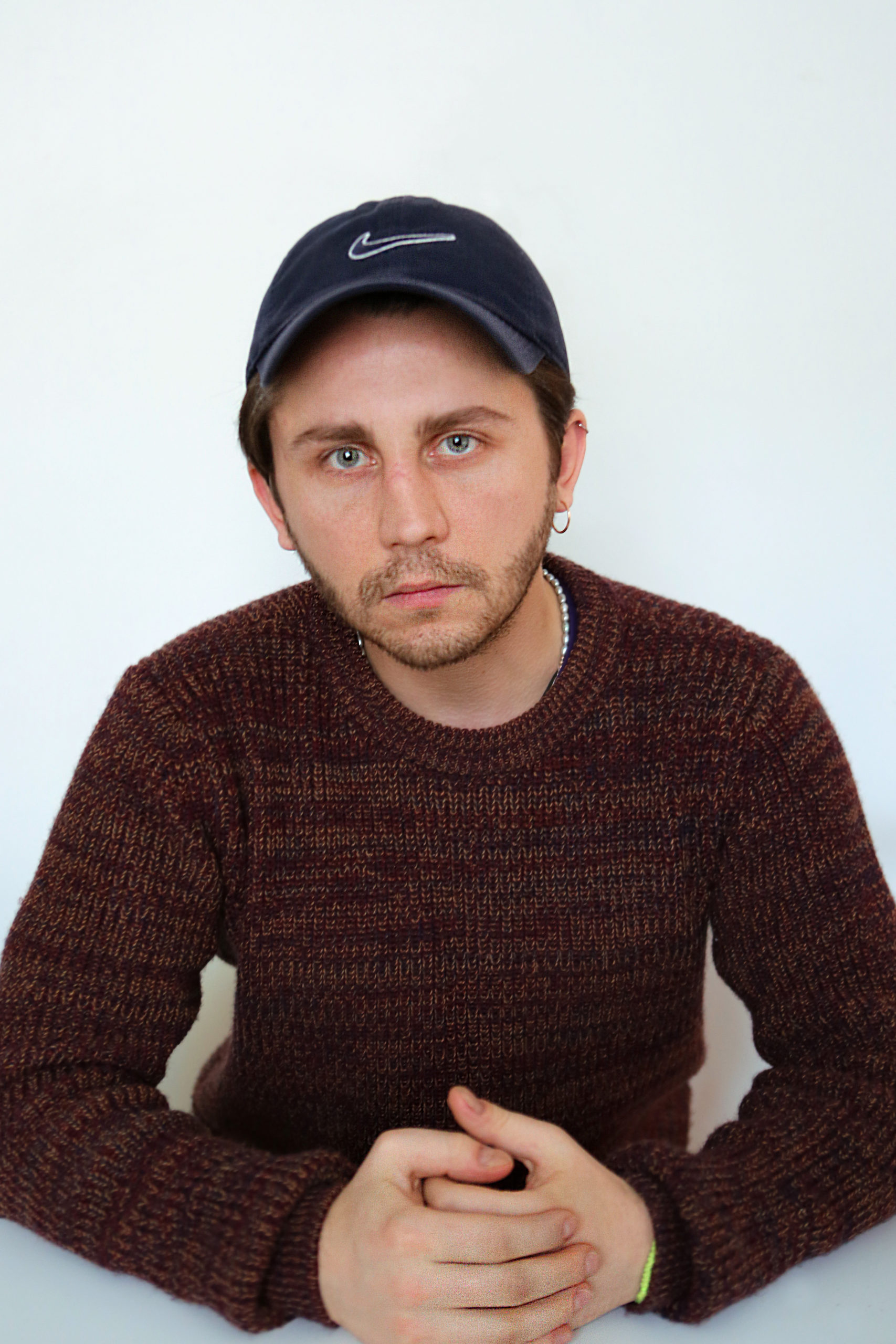
Photo courtesy of Anton Belinskiy.
Donate to Anton Belinskiy’s preferred organizations: Kyiv Angels, and Voices of Children.
Nearly three months since Russia’s launched its latest war on Ukraine, the siege of Europe’s second largest country rages on. Here, Anton Belinskiy—the Ukrainian designer and darling of Kyiv’s underground club scene—tells the Los Angeles-based writer and producer Polina Dubik about his earliest memories of the invasion, the beautiful patchwork camouflage nets he wove to support the war effort, and what he says to the Russians who choose not to believe their Ukrainian loved ones.
———
POLINA DUBIK: First off, where are you and how are you?
ANTON BELINSKIY: I am currently in a town called Nauka outside of Kyiv. Right next to us is an oil depot and a town called Vasylkiv which was in the news recently because it was heavily bombed. Bombs were flying on either side of me as the war started. But the last two days were relatively quiet. It’s funny, I have a friend in New York, and when we speak on the phone, she’s in tears, and I’m the one calming her down. Here, we’re already used to this reality. At some point, your psyche shuts down and blocks out the fear and stress.
DUBIK: How is your family?
BELINSKIY: We are all staying here. My mom is Russian, from St. Petersburg. My grandfather was a geodesist who built electric power plants in the USSR. Eventually, he was moved to Ukraine to build the Chernobyl plant. That’s how we ended up in Ukraine. I have an aunt in St. Petersburg, my mother’s sister. When you try to explain to your relatives in Russia what is really happening here, they don’t believe you. They think everything is fake news, that we are bombing ourselves, all that. My aunt says that we, the Ukrainians, are fascists. It is absolutely shocking to me that my relatives in Russia don’t hear me. I told my mom, “Don’t argue with them. Don’t raise your voice. Just calmly say, ‘I heard there are elephants walking in the Moscow streets.’ They’ll say, ‘That’s not true.’ I told her to respond, ‘No, it is true.'” That’s the level of absurdity they’re living in. I live here, why don’t they doubt their propaganda when they talk to me?
DUBIK: What is happening with your brand?
BELINSKIY: My business has been on a rollercoaster. My design studio is now on pause, but I’ve been doing other things. In the first days of the war, I launched a collaboration with 032C—a series of Free Ukraine shirts for charity. They sold out in one hour. They are now open source, so anyone who wants to produce and sell them to help Ukraine can write to us, and we will send them the design.
DUBIK: Can you recall the first days of the invasion?
BELINSKIY: I am very intuitive. The day before the war, I was in my studio, and I had this strange feeling. For some reason, when I left for the day, I wanted to take everything with me. I brought my sketchbooks, my notepads, my art materials—this is something I never do. I just had a bad feeling. My sister, her husband, and their two-month-old baby were visiting that week, and we woke up late at night from loud explosions. I looked out the window, and the sky was a bloody pinkish-red. Those first minutes were horrifying. Then your animal survival instinct kicks in. We started strategizing, and went to the store to stock up on food and diapers. When all the errands were done, the tears came.
DUBIK: From your Instagram, it looks like you instantly kicked into action mode.
BELINSKIY: I like to try everything. At the start of the war, I transported humanitarian aid and uniforms that came in from the West, sourced supplies from businesses, wove military camouflage nets to protect strategic objects from aviation strikes. They are beautiful actually, they look like patchwork. I even did construction. I built paths over railways for cars in case of evacuation. This was all organized by our Territorial Defense forces. In the early days, I told them I was ready to take up arms. They basically laughed and sent me home: they didn’t have enough weapons, and they certainly weren’t going to waste any on me.
DUBIK: Are you keeping in touch with your friends in Russia?
BELINSKIY: I have many friends in Moscow. We speak often, they are all crying. At first I was telling everyone to go protest. But then I realized that the people protesting are the people who are always protesting—they get arrested and taken to the police station over and over again. Evil will never win over evil. We need to stop the circle of violence with kindness. I am a religious person, so for me this is easier. When my friends ask me, “What should I do?” I say, “Calm down, breathe, do the things you are already doing. Help however you can. Maintain your mental health. Go to church on Sunday.”

